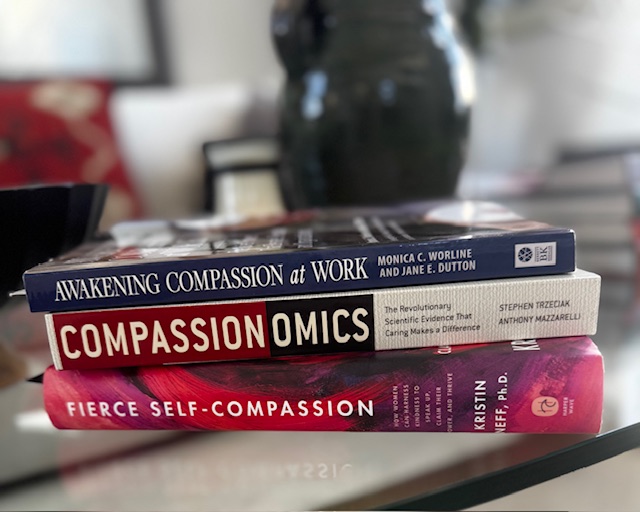

Today we’d like to introduce you to Aleksandra Kalinich.
Hi Aleksandra, we’re thrilled to have a chance to learn your story today. So, before we get into specifics, maybe you can briefly walk us through how you got to where you are today?
Before becoming a psychologist, I worked in the entertainment industry – an exciting and demanding environment that showed me early how much workplace culture shapes people’s well-being. I later shifted careers after seeing firsthand how effective, steady, and compassionate therapy can be. That clarity pushed me toward a career where I could offer the same grounded support to others, rooted in compassion and science.
In my early clinical work, I saw how many people from various backgrounds whether it be women, Veterans, graduate students, individuals with severe mental illness, and just people navigating everyday stressors struggled with a harsh inner critic. I became interested in Kristin Neff’s research on self-compassion as an antidote to that inner critic and created an 8-week group that I brought to a community mental health center, a partial hospitalization program, and eventually a college campus. I was fascinated to find that the work resonated with every population. Over time, I found myself especially drawn to helping high-achieving women who were exhausted by perfectionism, chronic pressure, and an inner critic that never seemed to rest. I have built my private practice around helping these women develop self-compassion, break old patterns, and build a clearer, kinder relationship with themselves.
At the same time, I couldn’t ignore what I was seeing inside workplaces. People weren’t only struggling internally, they were struggling in systems that rewarded overworking. Healthy environments created connection and psychological safety; unhealthy ones produced burnout, fear, and mistrust. This pushed me to expand my work. While working at UCLA, I completed Stanford’s CCARE program, where I studied the application of compassion in organizations. My capstone project, The Value of Compassion in the Workplace, was well-received and pushed me to add consulting to my private practice for organizations that want to create healthier, more effective cultures.
Today, my work bridges both worlds. I continue my clinical work with women navigating perfectionism and burnout, and I help leaders build compassionate, effective workplaces. Both sides of my work inform each other. When people and systems are supported with compassion, they function better and everyone feels the difference!
I’m sure it wasn’t obstacle-free, but would you say the journey has been fairly smooth so far?
Honestly, it has mostly been a smooth road in terms of my career. BUT I will say that the work can be very hard. Especially when you are working with trauma, which is what my focus has been over the last 7 years. It has been one of the privileges of my life; however, absorbing so much sorrow and despair and seeing man’s inhumanity to man can also be deeply distressing. I’ve had to learn to prioritize my own rest and joy in order to show up for others in a sturdy and capable way.
Appreciate you sharing that. What else should we know about what you do?
In my private practice, I help high-achieving women see themselves clearly beyond entrenched self-criticism and outdated beliefs. My work centers on teaching self-compassion and other evidence-based tools that help clients reclaim their power without losing their gentleness. It’s heartbreaking to see brilliant, capable women speak to themselves in ways they would never speak to another human being, but watching them learn to relate to themselves with understanding instead of punishment is freeing, inspiring, and honestly a lot of fun. I’m just the guide handing them the tools, and seeing what they do with them keeps my work dynamic and energizing.
Parallel to this, my consulting work focuses on helping organizations build compassionate, psychologically safe environments: places where people can take risks, learn from failure, collaborate meaningfully, and sustain their energy without burning out. What I teach leaders isn’t so different from what I teach individuals: people, and systems, flourish when the environment is compassionate, not punitive. One side of my work informs the other, keeping everything I do connected and impactful.
What makes you happy?
Joy doesn’t take much, and I actually prefer that word over “happy,” which can feel elusive and pressure-filled. Even on hard days, I can find joy or humor – something I learned from my mom, who notices beauty even in the most challenging of times. It shows up in small moments: a funny interaction with a stranger, petting a dog on a walk, a meal with a friend filled with deep talks and light laughter. It also shows up in the work I do: a client finally dropping their self-criticism long enough to breathe or a workplace shifting from “tough it out” to “you’re a human being, let’s start there.” Joy, for me, is a practice and is also deeply connected to gratitude!
Contact Info:
- Website: https://www.compassionconsulting.org/
- Instagram: @dearcompassionette
- LinkedIn: https://www.linkedin.com/in/aleksandrakalinich/
- Other: https://substack.com/@compassionette?















